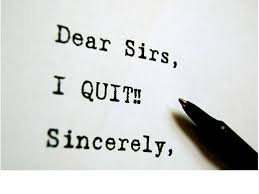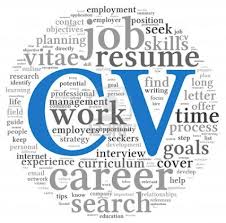Cover Letter Guide
How to write a covering letter/email: This should be a short statement to summarise your CV and highlight why you are the right candidate for the job. See below what Recruitment Avenue recommend writing in your covering letter/email. Always remember to tailor to each and every position you apply for. Recruitment Avenue cover letter/email example: Dear Name (or Sir/Madam as appropriate), Opening Paragraph: Identify yourself; state what position you are applying for and where the vacancy was advertised. Second Paragraph: Cover: why you’re interested in the role and why the company appeals to you. Mention your academic background, relevant qualifications and related work experience. Third Paragraph: Mention that you have enclosed your CV/completed application...
Handing In Your Notice
Handing your notice in to a manager you have worked with for a period of time is never an easy task and it shouldn’t be underestimated. Planning what you’re going to say and how you’re going to say it is going to be vital. Remember, it costs employers a lot of time, money and effort to recruit new members of staff as well as the disruption to the department. Recruitment Avenue’s tips for handing in your notice: Practice – Write down what you want to say and list the reasons why you are leaving Practice with a partner/friend to build confidence Be firm and assertive but always remain professional Thank your manager for all their time and effort but reinforce that your mind is 100% made up and that you would like them to respect your...
Interview Tips
Do your research You are certain to be asked specific questions about the company, so make sure you’ve done your research. Go on the company website and find out the latest company news, annual reports and history. This demonstrates enthusiasm and sincere interest in the company that you have applied for. Practice your answers Although there is no set format that every job interview will follow, there are some questions that you can almost guarantee will be asked. You should prepare answers to why you want to work for the company, what motivates you, what are your strengths and weaknesses, why you would be the perfect candidate for the role and what are your future goals. Look the part Appearances shouldn’t matter, but the plain fact is that you are...
C.V Guide
Your CV should be no longer than two or three sides of A4 (most employers spend 13 seconds skimming your C.V). Your C.V is intended to provide a brief, but full, account of your working life, including your interests and academic achievements and qualifications. CV Guide: Personal Information Name Address Telephone number Email address DOB (optional) Employment History List your employers in date order (starting with the most recent) The role you held in each company Bullet point list of your tasks and responsibilities Education GCSE’s & A-levels (or equivalent) Degree Any other professional training or qualifications Relevant skills Interests What you like to do outside of work Referees Whether they can be...






